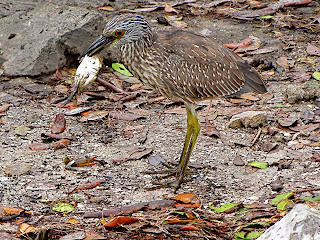


Part 3
Before I quit, let me discuss two of the poem’s gifts.
The Meadow Mouse by Theodore Roethke at Old Poetry
First, there's the daring opening, “sleeps the baby mouse” instead of “the mouse sleeps,” or some other less charming phrasing.
The inverted, perhaps archaic syntax in “sleeps the baby mouse” instantly creates the tone of a children’s tale, which the rest of the poem pretty much sustains, effectively forcing us to revive our childlike sensibilities. That diction might even offer the argument that compassion and sensitivity are inherently childlike responses, what Wordsworth called the “primal sympathies, which having been must ever be.”
Although I still fault Roethke’s poetic excesses in this direction, they might create an interesting position about human psychology. What if every instance of human sympathy or empathy is, and must be, the resurrection of a child’s heart and mind? What if that’s the only way we can even begin to understand compassion? What if adulthood without that inner child is limited to sterile, desiccated, egocentric, often mean thoughts and behavior?
Why would this be so? Because adults have learned to expect “adult” behavior from others—cunning, aggression, intrusion. Defensively, that requires of each adult constant vigilance, suspicion, strategizing, guile. Without those stone walls and nimble maneuvers we are children, spontaneous and empathic but vulnerable.
Maybe we are especially susceptible to feeling stupid

for not having foreseen and thwarted the trickery of our peers. “Fool me once, shame on you; fool me twice, shame on me.” The adage that W. made extra famous is probably more relevant to the adult’s world than the child’s, though it’s impossible to know when and how barriers begin to rise and thicken. And, lest we over-romanticize puerile innocence, let’s remember that most of these defenses are necessary to psychic or even physical survival.
Secondly, part of my resistance to Roethke’s final line grows from what I imagine without that line. It’s considered heresy in critiquing a friend’s poem to rewrite images or lines for him, but I’m going to do just that—to an icon, no less. I’d have encouraged Roethke to consider this ending:
I think of the nestling fallen into the deep grass,The End. If we omit Roethke’s final line, we have a turn from vulnerable mouse toward vulnerable human, the paralytic. And stop. Although it’s a sudden, even shocking turn, it’s been implied all along. The poem is about all things vulnerable, not just baby mice.
The turtle gasping in the dusty rubble
of the highway, the paralytic stunned
in the tub, the water rising.
The Meadow Mouse by Theodore Roethke at Old Poetry
In my suggestion there are risks of causing the poem to seem disjointed or herky-jerky at the end—and making the poem more anthropocentric. Maybe I’m suggesting, “You thought it was about the mouse? It was always about the human, always will be, if a human’s telling the story.”
But that would not glorify humans; it would simply pin down the nature of human sympathy, confessing that we care about the mouse primarily because that sympathy clarifies the way we care about our own, our collective Me. To say otherwise is at least a little dishonest.
Let me repeat that I have no axe to grind with Theodore Roethke, whose poem “The Waking” I admire as much as any poem I know. “My Papa’s Waltz,” “I Knew a Woman,” and “The Geranium” are not far behind.
The Meadow Mouse by Theodore Roethke at Old Poetry
I also love the parental instincts here, the compassion, the heart, the . . . reverence? . . . for everything fragile in “The Meadow Mouse.” However, I think those feelings might have more power if they’d been forced to struggle for existence, struggle to be expressed, if there were a sense that Roethke had tried to hold back more of his flood of sensitivity, if the poem were a little tougher about its emotionality. In the old, good bromide, “Show, don’t tell,” I wish the poem had told a little less and been satisfied with what it showed.
So I'm outta here on this. You think you're sick of the subject? Imagine how I feel. Happy February.







































